Baboon Wars: Aggressive Monkeys Attack People in Cape Town
What to do when nature declares war on man? In Cape Town, residents live under siege from aggressive baboons who raid houses and streets like real robbers. Why have the monkeys become so fearless and is it possible to stop them without using force? Find out about the epic struggle between man and nature in our new material and decide for yourself who will win this war!
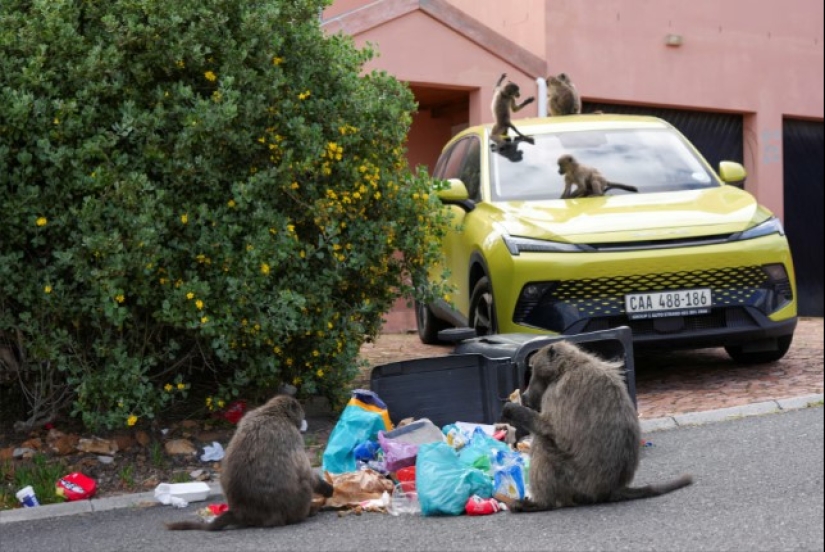
Fauna is retreating under the onslaught of man. But in some places, animals are successfully resisting. One such example is Cape Town in South Africa. There, troop of baboons have been terrorizing certain areas of the city for several years.
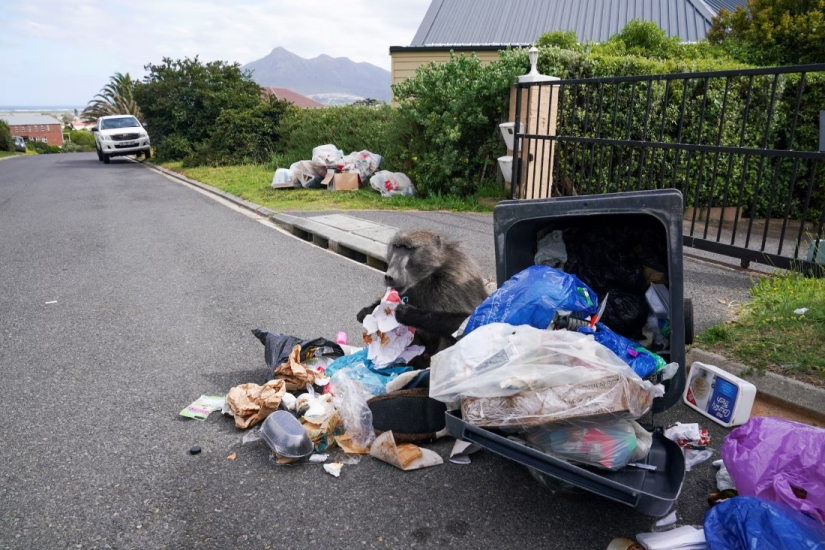
The growing city is forcing these large primates to increasingly invade residential areas in search of food. Baboons raid houses, cars and garbage bins. Although baboons are protected by law in South Africa, the aggressive behavior of these animals is forcing the Cape Town City Council to take measures to protect residents.
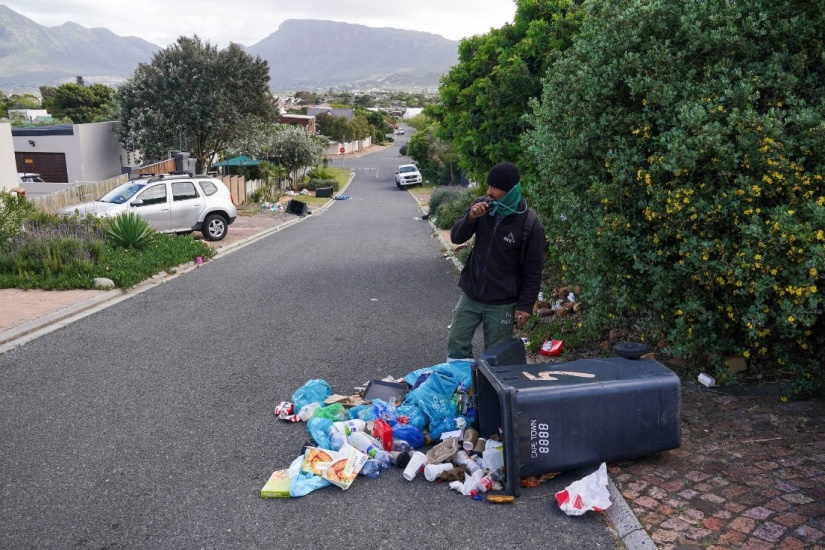
For many Cape Town residents, baboons have become familiar, but extremely unwelcome, neighbors. These omnivorous primates consider the coastal hills their territory. Their social structure is based on markings by males to mark their territory. The presence of humans for baboons is associated either with easily accessible food or with competition for territory.
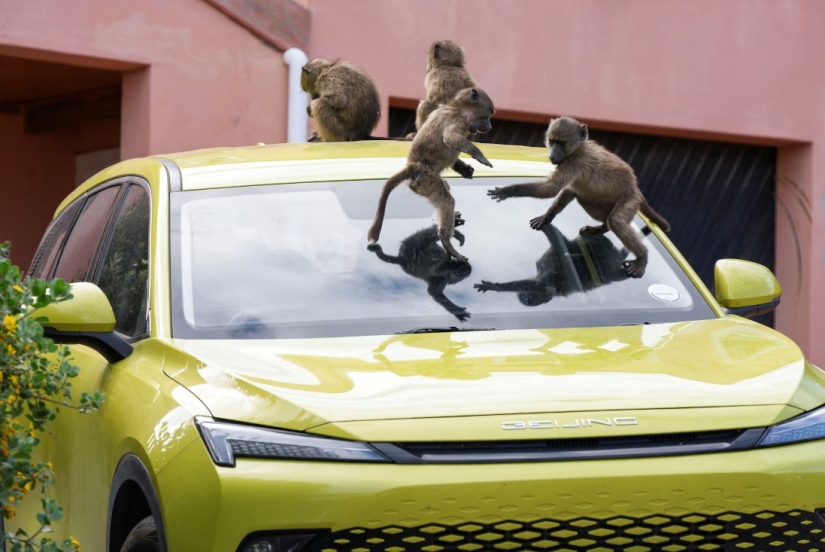
Monkeys not only attack passers-by, taking away their food, but also easily open car doors, cleaning out the interiors. Their most successful "thefts" are associated with breaking into houses - primates are able to climb vertical walls and penetrate windows. During their raids, they not only steal food, but for some reason also take away curtains and soft toys.
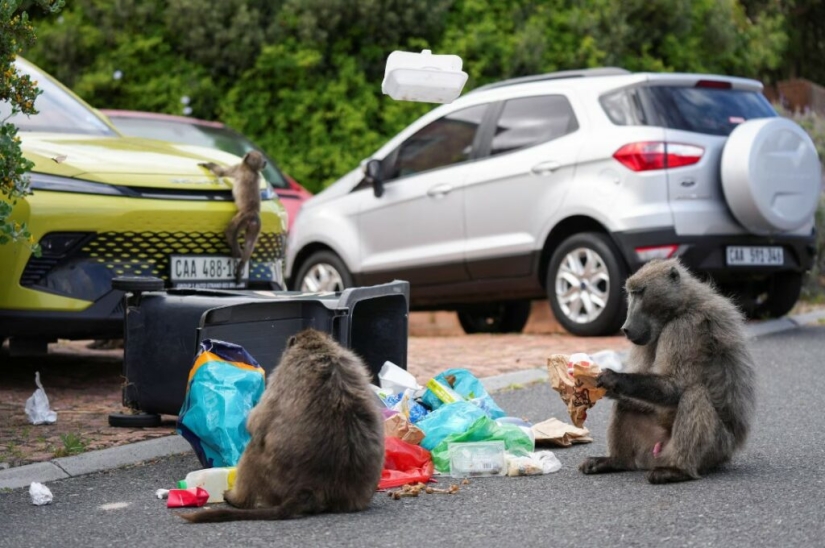
The rapid increase in the number of baboons began in the late 1990s, when South Africa passed a law prohibiting their destruction. At that time, the primate population was on the verge of extinction. Today, their numbers have increased significantly.
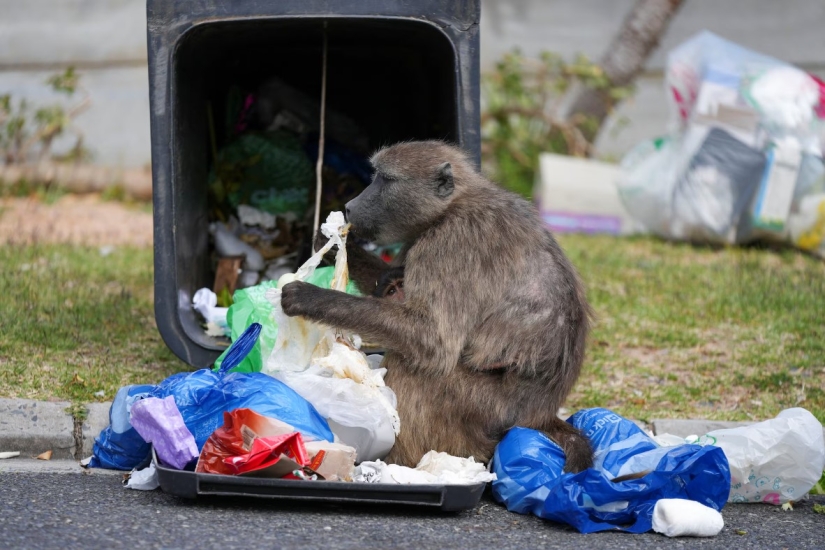
The aggression of these animals is also explained by the irresponsible behavior of tourists who feed the monkeys and leave behind garbage. In the minds of baboons, the association between humans and food sources is firmly entrenched.
Every spring, a real "war" unfolds around Cape Town. Veterinary officers, armed with flare guns, push the baboons back into the mountains where they usually live. But with the start of the tourist season, the primates return again, raiding cafes and restaurants, emptying garbage bins and stealing everything they can carry.
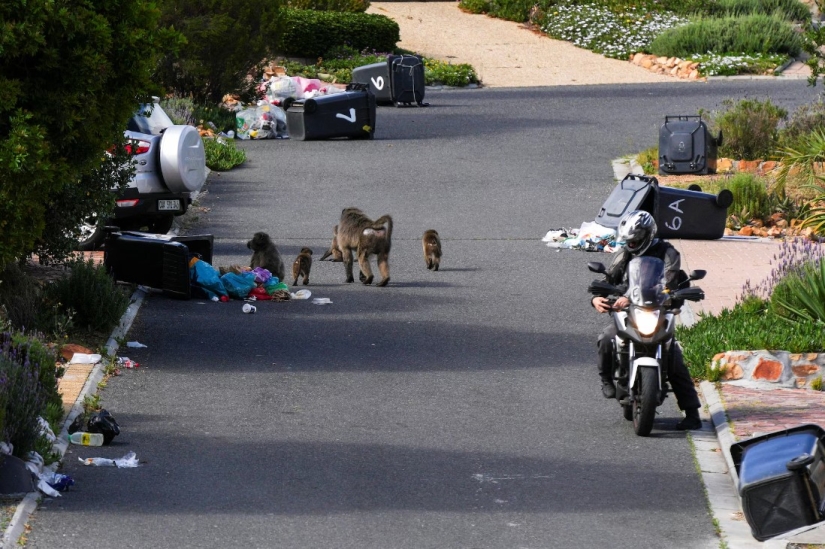
Baboons not only steal food, but can also attack people. Their bites are dangerous due to possible infections, and the monkeys' behavior is becoming increasingly fearless towards people.
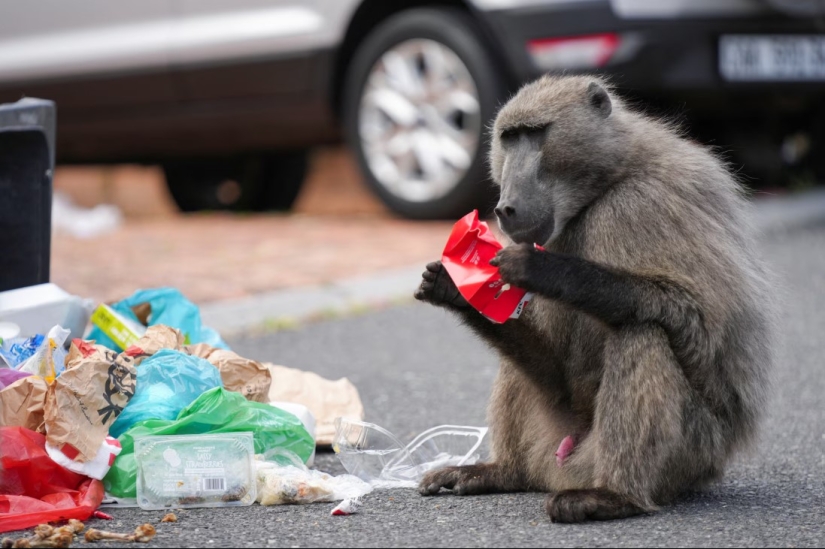
These primates cause considerable harm: they destroy vegetable gardens, kill poultry, and sometimes even attack large dogs. Local residents live as if under siege - they cannot open windows in the heat, and picnics and outdoor parties have become almost impossible. Due to the constant fear of monkeys, many families are forced to leave their homes.

Local authorities and residents are trying to protect themselves from aggressive neighbors. Unfortunately, many measures are ineffective. They use paintball guns, peppermint sprays, and special teams that create a buffer zone between people and primates.
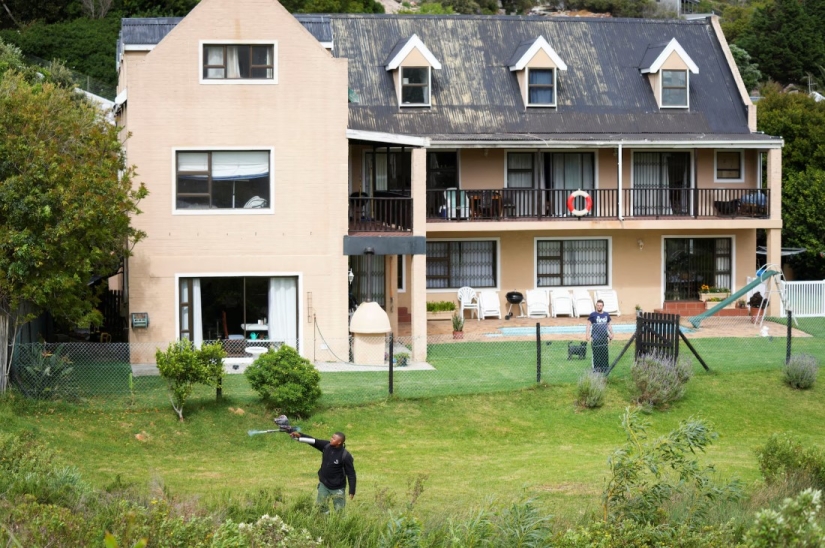
The head of the baboon control service, Philip Richardson, said the team uses a pepper solution to create "odorous boundaries" that the primates associate with danger. They also use sound grenades and flares to scare the animals away. The authorities hope such non-violent methods will help in the long term.
Do you think such methods can help solve the problem? Or will the baboons continue to attack the city? Share your opinion in the comments!
Recent articles

It's high time to admit that this whole hipster idea has gone too far. The concept has become so popular that even restaurants have ...

There is a perception that people only use 10% of their brain potential. But the heroes of our review, apparently, found a way to ...

New Year's is a time to surprise and delight loved ones not only with gifts but also with a unique presentation of the holiday ...